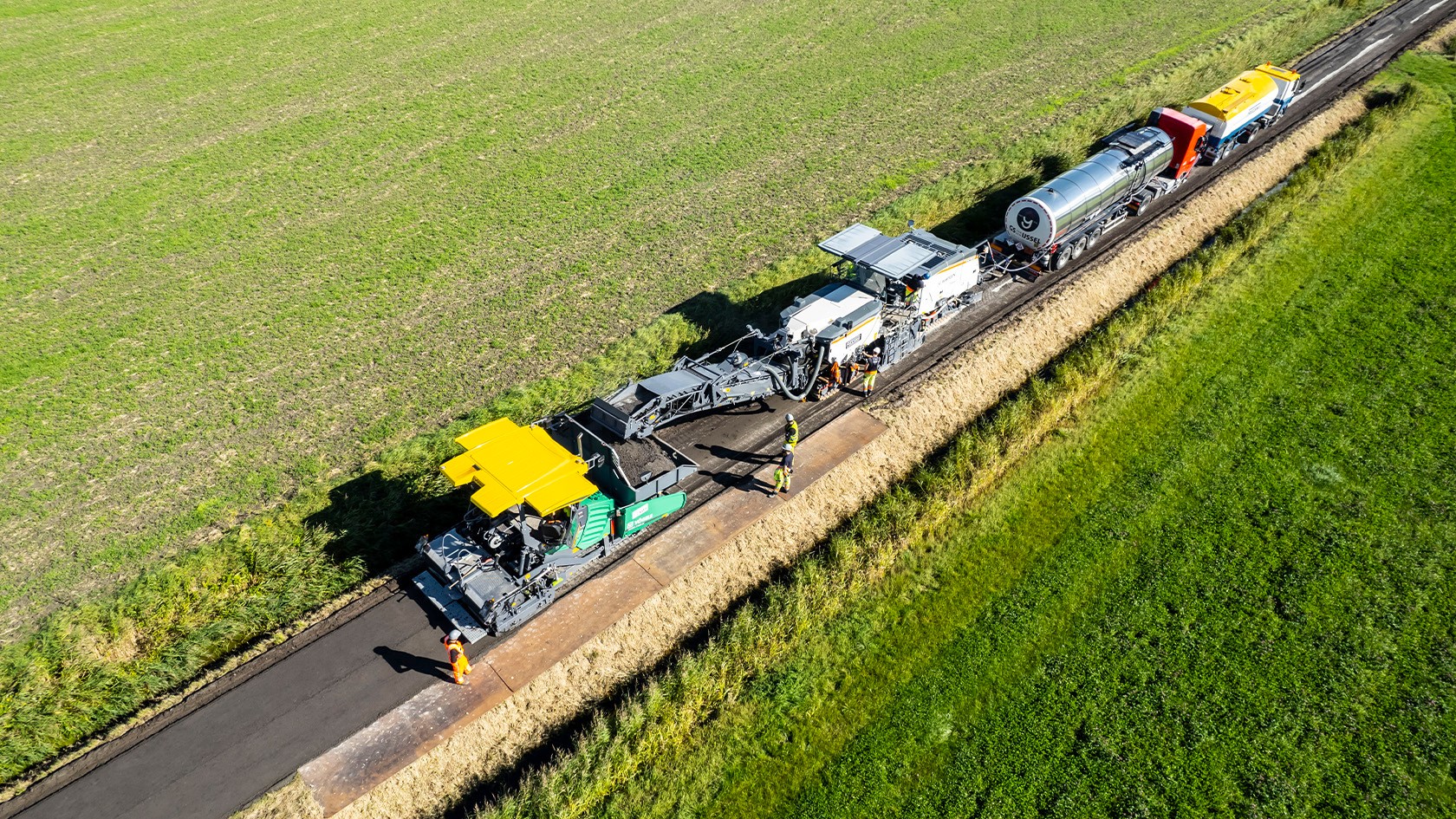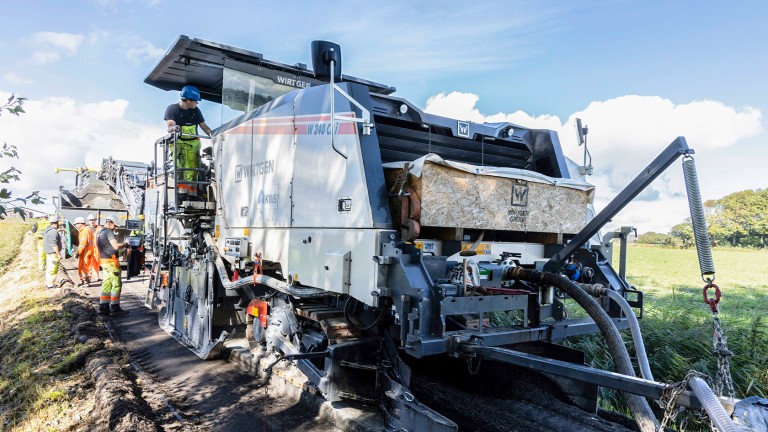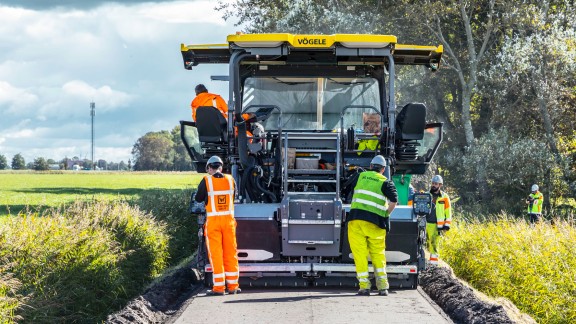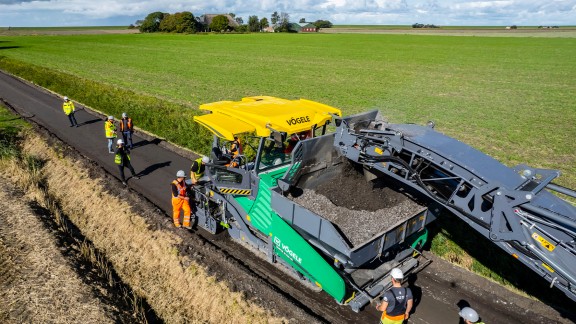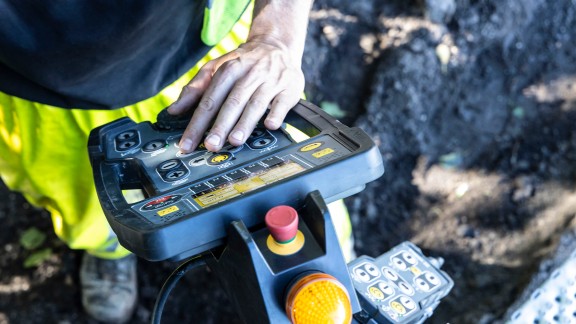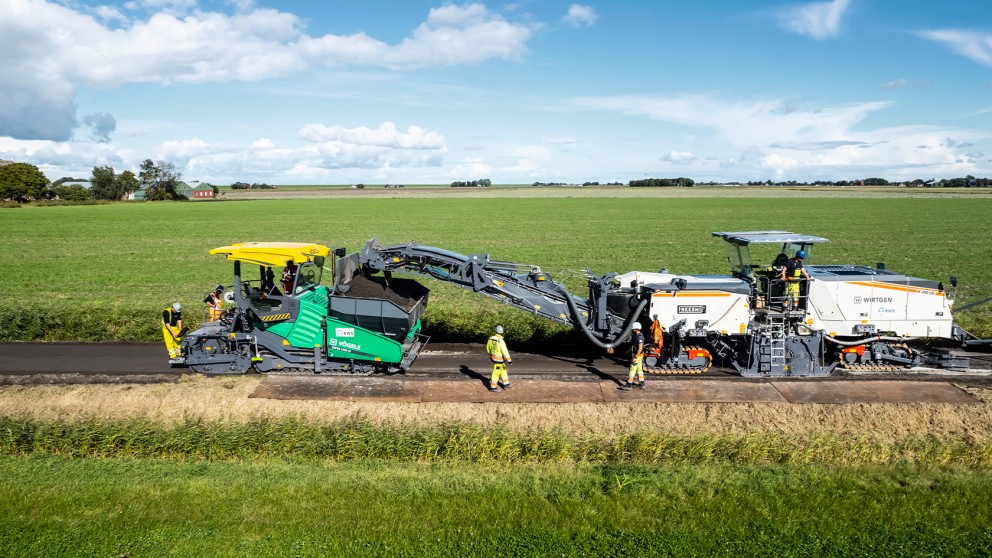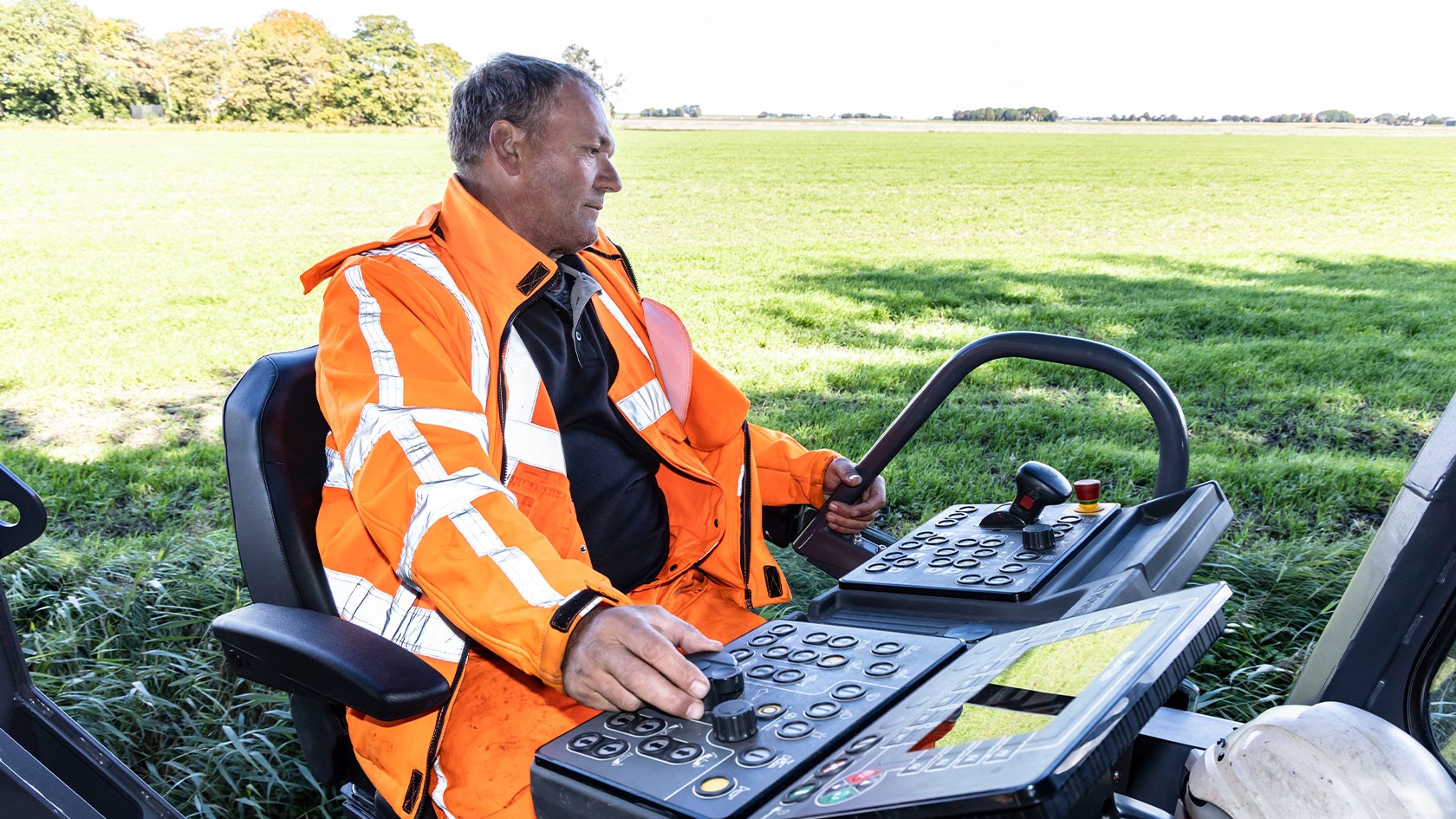Optimised material management and high pre-compaction values
Another new feature of the “Dash 5” pavers - the updated material handling control system - was also beneficial in terms of the environmental performance and quality of the construction project. The auger and conveyors now communicate with one another, ensuring that material feed is even more consistent and precisely coordinated. This avoids load peaks, saves fuel, enables an optimum head of material in front of the screed and thus uninterrupted paving. On the job site, the new hydraulically extending limiting plate for the auger tunnel, referred to as the Power Tunnel, additionally ensured an optimum level of material in front of the AB 500 TV extending screed used. Equipped with the compacting systems of tamper and vibrators, the screed also achieved high pre-compaction values. Hydraulic tamper stroke adjustment enabled the paving crew to adjust tamper stroke from 4 mm to 8 mm at the touch of a button, making the perfect settings for paving the base course and then the surface course within seconds. Compared to mechanical adjustment, this reduced set-up times significantly. This simple and accurate adjustment method furthermore ensured optimum pre-compaction values, good floating behaviour of the screed and thus an optimum paving result. “This allowed us to completely avoid displacements caused by the rollers and to meet the high quality requirements for cold paving,” says van de Stadt.
